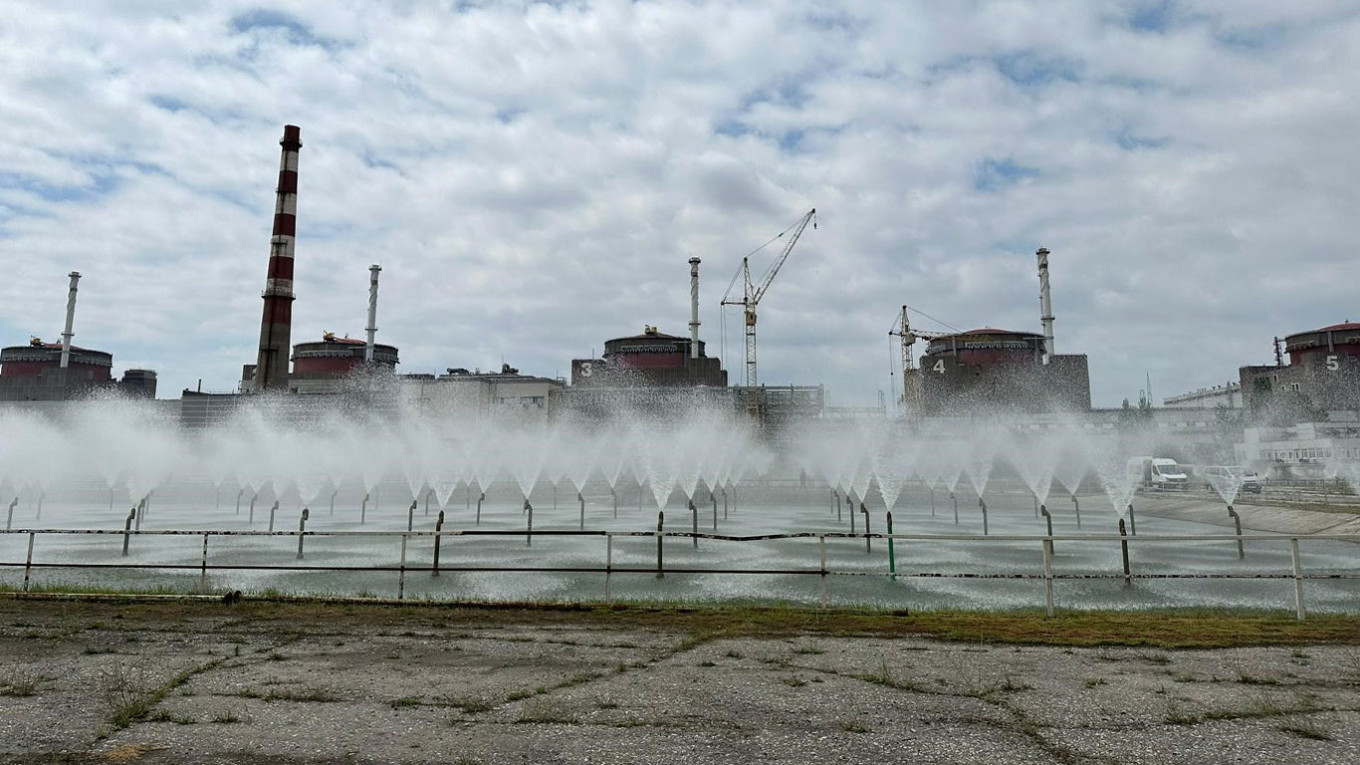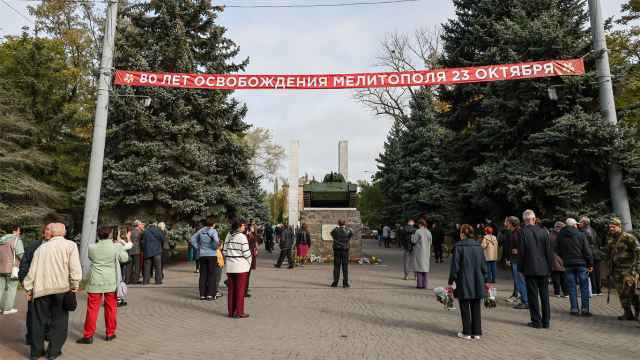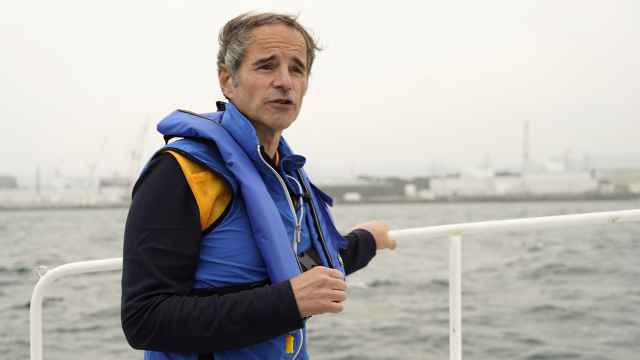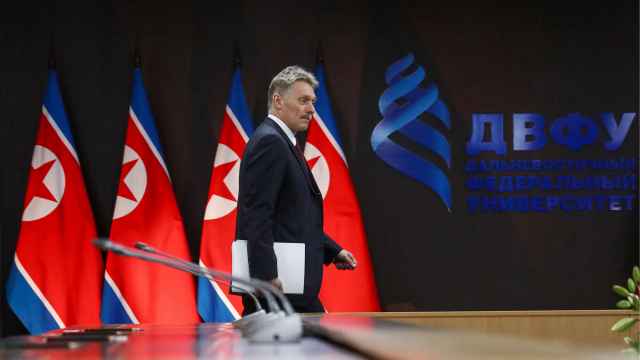The world is witnessing the unprecedented spectacle of a civilian atomic energy station being occupied by a foreign invader. The March 2022 seizure of the Zaporizhzhia nuclear power plant in southeastern Ukraine by Russian troops has thrust six nuclear reactors and pools of spent nuclear fuel onto the front lines of Europe’s biggest land war since World War II.
It’s something the international nuclear energy community never thought it would see — and thus never prepared for. As a result, the world has watched helplessly as heavy ordnance strikes nail-bitingly close to the plant on a regular basis, repeatedly disrupting outside power to the station’s critical cooling and safety systems.
At the center of this powder keg sits Rosatom, Russia’s state nuclear corporation, has emerged as a key player in Moscow’s assault on Ukraine. Rosatom personnel are now running the station and treating it as their own property, regardless of the international community’s refusal to recognize their claim.
Rosatom’s board is packed with former security officials who have ties reaching into President Vladimir Putin’s administration. It is thus inconceivable that Rosatom’s participation in the invasion wasn’t conceived at the highest levels.
Unlike the rest of Russia’s energy sector, Rosatom has escaped largely unscathed from Western sanctions despite numerous appeals from Kyiv to blacklist the corporation. In fact, Rosatom’s fortunes have actually improved since the beginning of the war. The corporation posted $10 billion in foreign sales last year, a 15% increase from the previous year. A report by the Bellona Foundation highlights how the West’s continued links with Rosatom are at odds with its strategy in Ukraine.
While not as lucrative for Moscow as oil and gas exports — which even in light of sanctions still total about $7 billion a month — Rosatom still provides a valuable revenue stream for the Kremlin’s war effort in Ukraine. This money also goes to Russia’s nuclear arsenal, which Rosatom is responsible for building and maintaining. Many of Ukraine’s allies have a hand in that by doing business with Rosatom. Why won’t the West shut off that money spigot?
The problem is that Rosatom is an almost unavoidable presence in the international nuclear sphere. It sits at the center of a web of interlocking dependencies that are exceptionally difficult to untangle.
As of 2021, there were 439 total nuclear reactors in operation worldwide. Thirty-eight of these were in Russia. Another 42 of those operating in other countries were of the Russian VVER design — including 19 in just five European Union member states. All of these depend on Russian-manufactured nuclear fuel.
Russia also owns between 40 and 46% of the world’s uranium conversion infrastructure, according to a report from Columbia University, which is critical for fabricating nuclear fuel. Europe obtains 20% of its uranium from Russia. Last year, the United States relied on Russia for 12% of its uranium, with another 30% coming from two of Moscow's close partners, Kazakhstan and Uzbekistan.
All the while, Rosatom has been supplying Russian weapons makers with the sanctioned materials needed to build the missiles they are firing on Ukraine.
Despite these obvious signs that Rosatom is a major player in Moscow’s invasion, there has been slow progress among Ukraine’s allies to sever their own ties to the corporation. There are 15 Russian-designed reactors under construction in other nations — including NATO members Hungary and Turkey. Hungary — where Russia is building two VVER reactors with a long-term fuel and service contract paid for by a 10-billion-euro loan from Rosatom — has thwarted attempts by the EU to act as a bloc and introduce sweeping sanctions against the corporation.
Individual members, however, can — and should — take their own unilateral actions.
Soon after the invasion in 2022, Sweden refused to purchase Russian nuclear fuel. Finland, which relies on Russian fuel at two out of its five reactors, scrapped a controversial deal with Rosatom to build a new nuclear power plant.
Countries and private firms have also turned to alternative providers of nuclear fuel, particularly the U.S. Westinghouse Electric Company. The Finnish energy company Fortum, Bulgaria, the Czech Republic and Slovakia have all announced agreements with the firm.
But this will not be an immediate solution. Fortum will only start using fuel from Westinghouse as its contracts with the Rosatom subsidiary TVEL expire over the next seven years. Finalizing new deals with Westinghouse could take as long as three years, and national regulators will also need to analyze and license the new fuel.
Ukraine itself was once a customer of Rosatom, relying on its fuel to supply the country’s 15 Soviet-built reactors. It is also working to shift to Westinghouse fuel, but it will be years before this transition is complete.
France, the European nation most reliant on nuclear energy, is going in the other direction. Last year, according to French government data, the country imported more than $370 million worth of enriched uranium from Russia in 2022, over three times what it imported in 2021. However, the lower figure in 2021 may reflect the fact that, in previous years, some French purchases of Russian-enriched uranium were reportedly delivered directly to facilities abroad where it would be made into fuel.
France itself is capable of enriching uranium domestically, and exports fuel to the U.S., Britain, Japan, Sweden, Germany and South Korea. There are also reports that uranium from Russia has been imported to Germany, where it was processed for use in French nuclear power plants. France’s high dependency on Rosatom contradicts Paris’s support for Kyiv.
The United States is also making slow progress towards punishing Rosatom. Legislation has been proposed that would cut off Rosatom-produced enriched uranium from the U.S. market. But with a deeply divided Congress, it seems unlikely it will be passed.
Rosatom’s uranium enrichment capacity seems to be its current trump card for avoiding sanctions. Building up enrichment capacity elsewhere to replace it will take time and significant investment. The United States is at least ten years from being able to supplant the supplies of enriched uranium they currently purchase from Rosatom.
However, knowing that continued reliance on Rosatom is helping to finance the Russian war effort would make such an investment worthwhile. The longer Western nations shy away from that fact, the more fragile and morally fraught their dependence on Rosatom becomes.
A Message from The Moscow Times:
Dear readers,
We are facing unprecedented challenges. Russia's Prosecutor General's Office has designated The Moscow Times as an "undesirable" organization, criminalizing our work and putting our staff at risk of prosecution. This follows our earlier unjust labeling as a "foreign agent."
These actions are direct attempts to silence independent journalism in Russia. The authorities claim our work "discredits the decisions of the Russian leadership." We see things differently: we strive to provide accurate, unbiased reporting on Russia.
We, the journalists of The Moscow Times, refuse to be silenced. But to continue our work, we need your help.
Your support, no matter how small, makes a world of difference. If you can, please support us monthly starting from just $2. It's quick to set up, and every contribution makes a significant impact.
By supporting The Moscow Times, you're defending open, independent journalism in the face of repression. Thank you for standing with us.
Remind me later.






